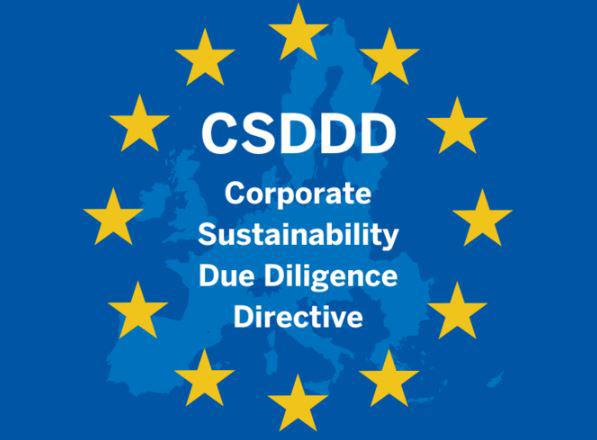Call to repeal European sustainability directive in US-led 'business-first' world
Supply chain leaders have given a mixed response to France and Germany’s calls to abolish the EU Corporate and Sustainability Due Diligence directive (CSDD).
Coming hot on the heels of newly elected German chancellor Friedrich Merz’s demand for the CSDD’s “complete repeal” this month, French president Emmanuel Macron echoed that sentiment on Monday in a speech at Versailles.
Eliciting cheers from an audience of business executives, Mr Macron said: “CSDD and other regulations have to not just be postponed, but need to be taken off the table completely.”
Supply chain executives in Berlin and Paris have varyingly described the CSDD – it requires companies to monitor global supply chains for human rights abuses and sustainability violations – as “onerous” and “essential”.
One forwarder told that the call was a “smart one”, believing the directive meant Europe was “shooting itself in the foot” and putting businesses on the continent at a “major disadvantage” to global competitors.
They added: “I want to stress that my objection to the directive is nothing to do with the issue of environmental and human rights abuses – all companies are addressing this themselves. What I object to are these onerous norms that penalise EU companies for what happens on the other side of the planet.
“We are in a global economy – why is it that European firms are taking the hit for exploitative practices that everyone else is capitalising on?”
Since 2010, demand for cobalt has more than trebled as a consequence of surging demand for electronics, including smart phones, laptops, and electric vehicles. Leading the supply is the Democratic Republic of Congo – which has the world’s largest cobalt reserves – and in that period, Amnesty International claims, the DRC has witnessed an escalation in human rights abuses, including forced evictions to access mines.
Secretary general of the European Shippers Council Godfried Smit told that while the CSDD’s objective is important, the way it was addressing these challenges “was causing a high level of administrative burden,” noting that smaller businesses are particularly exposed to negative impacts.
Mr Smit added: “Starting with leading companies might be a good choice. We hear from these companies that they are well prepared. Abolishing the objective would lead to disinvestment by these companies. If serious cases of bad practice are reported, there remains an obligation to investigate. If the Commission does not proceed, there is a risk of a patchwork of national legislations.”
However, another European forwarder warned that “scrapping or weakening these frameworks may offer short-term relief to some but also risks sending the wrong signal when unified and credible standards are more necessary than ever”.
There are suggestions that the call from France and Germany is a response to the current belief in Washington that business is now being prioritised above all else, as the bloc looks to secure trade deals with the Trump administration.
They told: “Fragmentation across member states could lead to even greater uncertainty in the long run. The directive gave structure and visibility to that work.
“We experienced genuine appreciation from clients, partners, and stakeholders for taking these responsibilities seriously. The goal should a balanced, practical implementation – one safeguarding competitiveness without compromising collective sustainability commitments.”
Noting similar pushback on the Corporate Sustainability Reporting Directive (CSRD), they said that the framework had provided “a strategic advantage – it helps build trust with partners, ensures future readiness, and strengthens positioning in sustainability-driven markets”.
Both forwarders noted that the societal push seemed firmly rooted in adopting humane, sustainable practices and that while short-term limitations may keep the market open for abuses, businesses needed to be looking to the long-term, with those failing to heed the ground shift setting themselves up for failure.
One forwarder said: “CSRD can, and should, be seen as an opportunity to establish transparency, credibility, and long-term resilience in our business practices”.
